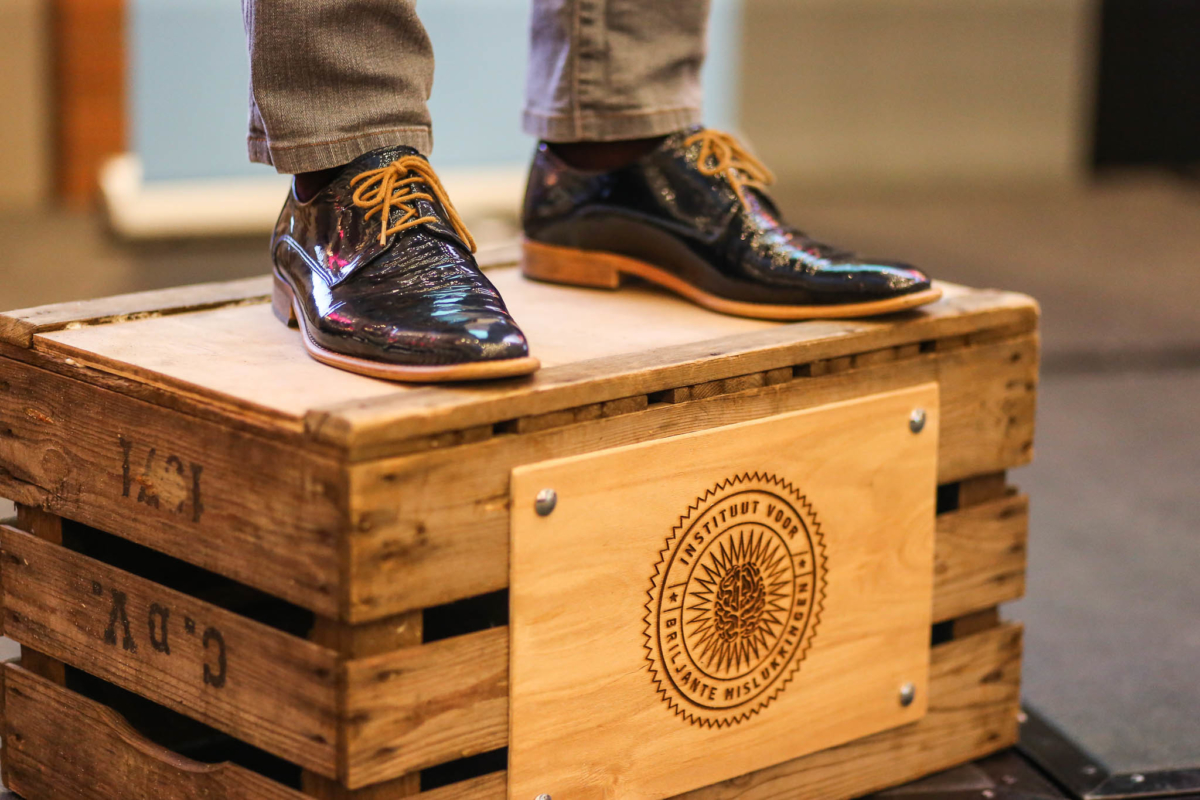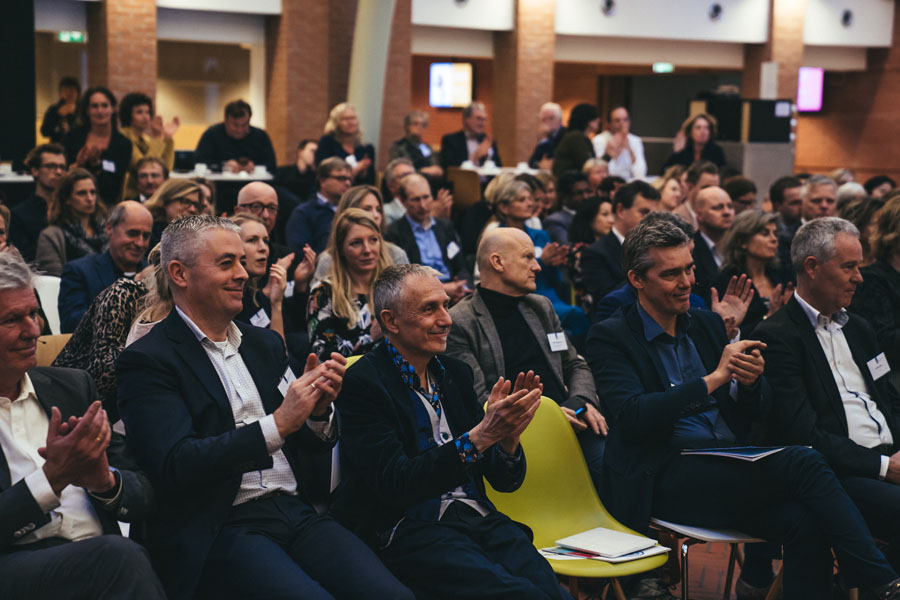Brilliant Failures Award Healthcare 2022
On 10 March 2022 the Institute for Brilliant Failures organized the Brilliant Failures Award Care at Achmea in Zeist for the eighth time. Especially in a professional environment such as healthcare, it is often (almost-)failures that drive progress. A Brilliant Failure is a well-prepared attempt to achieve something with a different outcome than planned. Failures are brilliant when they are learned from and the experiences are shared with others. We find the opportunities to learn when things go wrong or (upon success) could have gone wrong, but where that didn't happen. You can because you were lucky, but also because you consciously made the right decision, based on thinking, knowledge use, to collaborate, etc.
The Brilliant Failures Award Care is an award that we present annually in collaboration with, among others,. the Ministry of Health, Welfare and Sport, SunMw, Zilveren Kruis, Healthcare Institute Netherlands, Ipsos, Vilans, National eHealth Living Lab, Springer Healthcare and ICT&Health.
with

The Institute awarded two prizes for the most brilliant failed innovations in healthcare, innovations that did not get off the ground for various reasons. Where did it go differently than planned, what lessons can be learned and how can you share that experience. We linked the 16 Brilliant Failures archetypes to the cases to recognize common patterns and pitfalls. During the award ceremony, all nominees shared their lessons learned with the public and then two awards were presented, namely the jury prize and the audience prize. This year, Suikerbabies won the audience award and MijnEigenOnderzoek won the jury prize of the Briljante Mislukkingen Awards Zorg 2022. read here more about this year's award.
Brilliant Failures Award Healthcare 2021
On 23 In March, the Brilliant Failures Awards for Care were presented for the seventh time. A Brilliant Failure is a well-prepared attempt to make something happen, that has a different outcome than planned. Failures are brilliant when they are learned from and the experiences are shared with others. During the digital award ceremony, the nominated healthcare innovators shared their lessons with the public.
From audience award went to the Brilliant Bust of Corona Foundation in Mapping. From jury prize was won by general practitioner Dianne Jaspers with its initiative for digital triage at the GP post. Click HERE to read more about the awards ceremony.
View and read the stories of all nominees below.

Docly: Reduce the pressure on the out-of-hours GP with digital triage
Dianne Jaspers, medical director of Huisartsen Eemland, saw the pressure on her GP station increasing. When she was approached by Docly, she was immediately enthusiastic. Docly is a digital triage- a Swedish-made consultation platform that could also be a solution for Dutch GPs. Unfortunately, Docly withdrew from the Dutch market, but a new perspective emerged.
Qiy foundation: Digital Self-Determination on the Internet of People
If you use the internet, your data is roaming everywhere. Qiy Foundation wants to change that. People should have more access to - and control over - the data they generate online that relates to them. To this end, Qiy designed a worldwide agreement system. That turned out to be difficult- jk achievable moonshot, but Qiy’s ideals live on in differences- the applications - in healthcare and beyond.
myTomorrows: Patients who have finished treatment do want drugs in development, but they don't always get
Sometimes there is still hope for untreated patients. Medical treatments that are still being developed could provide them with the necessary health benefits. myTomorrows (mT) links patients and doctors to medicines that are under development. This sounds simpler than it is.
Corona Foundation in Mapping: Better insight into the local spread of the corona virus
When corona erupted, there was little insight into the local spread of the corona virus. The Stichting Corona in Kaart (SCiK(the Foundation for Mapping Corona)) therefore developed a regional data- and information platform and realized a pilot in Rotterdam. Unfortunately, it was not possible to keep the platform in the air and to roll it out nationally. The initiators hope for a restart.
The care cluster model: Towards a new model for health care demand typing and funding
The funding model of medical mental health care (mental health care) is due for replacement, many different parties agreed on this. In 2015 started the Dutch Healthcare Authority (NZa), commissioned by the Ministry of Health, Welfare and Sport (VWS), therefore a process to further develop the alternative care cluster model. All parties involved participated 2015 their commitment, but the trajectory caught on 2018 spaak.
Facial recognition: Through the door without stigma
Residents of nursing homes are allowed to walk around freely thanks to the open-door vision, unless this compromises the safety of themselves or others. That means that they are not allowed to just come everywhere. Theo Breuers developed a system based on facial recognition that warns when a resident enters or leaves certain areas. The project looked like General Data Protection Regulation(AVG)-proof, but ran up against privacy legislation.

